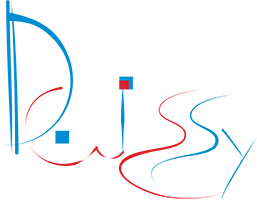KUTEL
-
Info
Title Kazakh Universities to foster quality assurance processes in Technology Enhanced Learning
Acronym KUTEL
Programme Erasmus+
Project Number 598377-EPP-1-2018-1-IT-EPPKA2-CBHE-SP
Start – End Date 15/11/2018 – 14/11/2021
Duration 36 months
Action KA2 – Cooperation for innovation and the exchange of good practices – Capacity Building in Higher Education
Funding Agency European Union
Total Project Funding €717,277
Project Homepage www.kutel-project.eu
Status Completed
Description
KUTEL is a three-year project co-funded by the European Commission in the framework of the ERASMUS Plus Programme, Key Action 2: Cooperation for innovation and the exchange of good practices. The Project is carried out under the centralized activity “Capacity-building in the Field of Higher Education” /CBHE/- 2018.
The Project Consortium brings together 14 organisations: four are from European countries – Italy, Bulgaria, Finland and Greece – and ten are from a Central Asia country, namely Kazakhstan.
The project aims to improve the quality and relevance of technology-enhanced learning (TeL) at Kazakhstan higher education institutions, and to enable their easier inclusion into European Higher Education Area. The main project objective is to improve, develop and implement accreditation standards, guidelines and procedures for quality assurance of TeL courses and study programs at a national level. The developed standards will assimilate the quality of TeL courses in order to incorporate into existing official documents at institutional levels. The project will also build the necessary capacities through establishing a framework for improving eLearning methodology and TeL quality assurance at Higher Educational institutional level by providing extensive training for all levels of staff involved in accreditation or delivery of TeL study programs, from teaching staff, trainers, evaluators, in particular, official accreditation reviewers and Higher Education public authorities from each Kazakhstan beneficiary institution. This will result in improving all Universities’ staff competences in defining and applying a standardized quality assurance system; defining national standards for quality assurance in TeL taking into account quality references and guidelines.
Project Outcomes
KUTEL is expected to bring long-term benefits as well. It is expected to develop a transnational co-operation system among universities and organizations from member countries and Kazakhstan in terms of:
- harmonisation of QA systems for technology-enhanced learning;
- scientific cooperation;
- knowledge transfer;
- exchange of best practices.
It will facilitate the generation of data value chains through various projects, research, and innovations.
The impact and the benefits of KUTEL would go beyond its lifetime through delivering sustainable outcomes. The Project addresses the Reform in the field of “Quality Assurance (QA) Processes and Mechanisms”, recognised as a national priority for Kazakhstan. It will modernize and reform teaching methodologies through the introduction of a national Quality Assurance (QA) Framework in blended learning by guaranteeing the improvement, development and implementation of accreditation standards, guidelines and procedures for QA of TEL courses and study programs at a national level. As stated in the Law “On Education” of Kazakhstan, as amended on November 13, 2015, one of the priority tasks of the national QA System is to carry on an international accreditation by Kazakh and foreign accreditation bodies, full members of the international EU QA networks and listed in the official Kazakh Registry that issue Certificates of accreditation with terms of 1, 3, 5 years.
The KUTEL results and outcomes will contribute for provision of alternate forms of technology-enhanced learning delivery to fulfill demand and need to transform Kazakhstan HEIs into new-generation institutions.

Publicity
